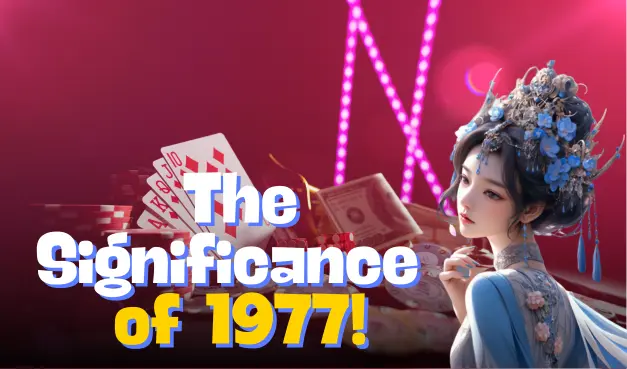The Significance of 1977: The Formation of PAGCOR and Its Impact on JILI’s Evolution
Introduction
The year 1977 was pivotal for the gaming industry in the Philippines, marking the establishment of the Philippine Amusement and Gaming Corporation (PAGCOR) via Presidential Decree No. 1067-A issued by President Ferdinand Marcos. This move was a strategic response to the rampant illegal gambling activities that plagued various parts of the country. Over the years, PAGCOR has become a significant player in the gaming industry, both as an operator and a regulator. This transformation has laid a strong foundation for companies like JILI, which entered the market in 2015, to thrive in a well-regulated and dynamic environment.

The Birth of PAGCOR: A Government Initiative
In the late 1970s, illegal gambling had become a significant problem in the Philippines. To combat this, President Marcos established PAGCOR on January 1, 1977. The primary goal was to create a state-run entity that would regulate and control all forms of gambling, thereby eliminating illegal operations—the decree aimed to channel gambling revenues into the national coffers and support social and economic development projects.
Early Operations and Challenges
Initially, PAGCOR faced several challenges, including establishing credibility and operational efficiency. One of its first significant ventures was the operation of a floating casino in Manila Bay in 1977 through a contract with the Philippine Casino Operators Corporation (PCOC). However, this venture faced a setback when the floating casino was destroyed by fire in 1979. This incident prompted PAGCOR to shift its focus to land-based casinos, leading to a new phase of growth and development.
Shifting to Land-Based Casinos
Following the destruction of the floating casino, PAGCOR entered into a new contract with PCOC to manage a casino at the Provident International and Resources Corporation (PIRC) building on Imelda Avenue, Parañaque, Metro Manila. This transition began PAGCOR’s dominance in the land-based casino industry. The shift stabilized its operations and paved the way for future expansions.
Legal Mandates and Expansions
The legal framework for PAGCOR’s operations was further solidified by Presidential Decree No. 1869 in 1983. This decree mandated PAGCOR to act as the government corporation responsible for conducting and establishing gaming pools and casinos nationwide. This legal backing enabled PAGCOR to expand its reach and influence, significantly contributing to government revenues.
Reorganization and Growth Under New Leadership
In 1986, following the People Power Revolution, President Corazon Aquino restructured PAGCOR to enhance its role in raising government funds. Under the leadership of its first chairman, Norberto Quisumbing, and later Alicia L. Reyes, PAGCOR saw substantial growth. The organization continued to evolve, expanding its operations to include VIP slot clubs, bingo parlors, and e-games cafes. This period of reorganization set the stage for PAGCOR’s future successes and innovations.
Modern Developments and Strategic Initiatives
Significant legislative and strategic developments have characterized the modern era of PAGCOR. In June 2007, Republic Act No. 9487 granted PAGCOR another 25 years to regulate and operate games of chance. This act also authorized PAGCOR to enter joint ventures, management, or investment agreements with private entities, particularly for developing integrated resorts in Manila and Newport City.
These legislative changes allowed PAGCOR to attract substantial investments, establishing Las Vegas-style integrated resorts. By November 2014, two major integrated resorts had opened, marking a new era of luxury and entertainment in the Philippine gaming industry.
The Rise of JILI in a Well-Regulated Market
Against this backdrop of a well-regulated and thriving gaming industry, JILI entered the Asian market in 2015. From the stable and dynamic environment created by PAGCOR’s regulatory framework, JILI has been able to innovate and expand its offerings. JILI integrates research and development, production, and sales of casino software products, contributing to the industry’s growth with its cutting-edge technology and award-winning games.
Conclusion
Establishing PAGCOR in 1977 was a turning point for the Philippine gaming industry, which evolved from combating illegal gambling to becoming a significant regulator and operator of gaming activities. PAGCOR has created a robust and dynamic environment for companies like JILI to thrive. The foundation laid by PAGCOR’s regulatory framework and strategic initiatives continues to support the growth and innovation of the gaming industry in the Philippines, ensuring a bright future for both local and international gaming enterprises.







